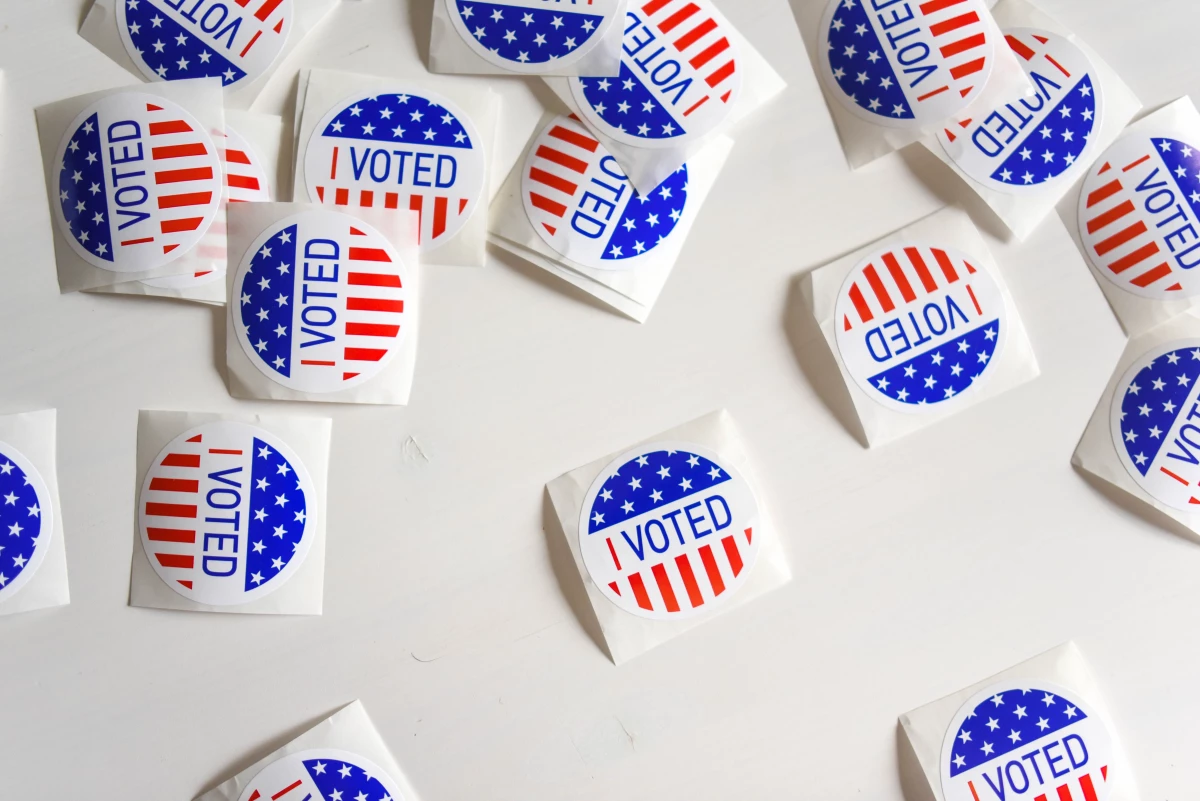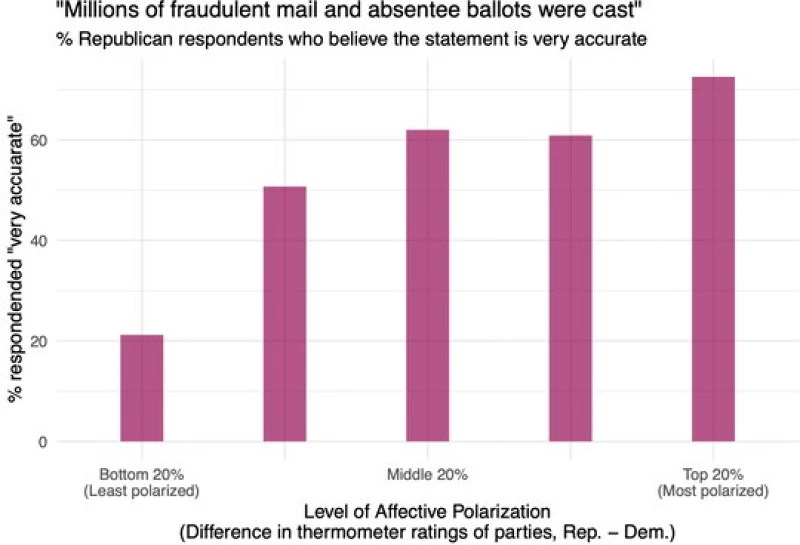- Home /
- Research /
- Reports & Analysis /
- Which Republicans Are Most Likely to Think the Election Was Stolen?
Which Republicans Are Most Likely to Think the Election Was Stolen?
Those who dislike Democrats and don’t mind white nationalists. That includes plenty of Republicans with college educations.

Credit: Unsplash
Authors
Tags
This article was originally published at The Washington Post.
Read more about perceptions of voter fraud.
After an election loss, the defeated party usually looks for narratives to make sense of what happened. Unusually for the United States, in this election, the losing candidate decided to claim, falsely, that he wasn’t truly defeated at all.
Existing research shows that partisans often adopt their leaders’ views. We recently fielded a study finding that indeed this was the case, although the magnitude of this effect is still startling: Over 70 percent of Republicans said they agreed with President Trump’s contention that he received more votes than Joe Biden. Nor was this belief limited to those with lower levels of education: A majority of Republicans with college degrees in our sample said they believed that the election results were fraudulent.
But the Republicans most likely to make false claims about electoral fraud were those who were the most disdainful of Democrats and who sympathize with white nationalists.
How we did our research
From Dec. 16-29, we polled more than 2,600 registered voters (including 962 Republicans and Republican leaners), asking whether they were confident that their votes were counted fairly and accurately. The survey was administered by YouGov, and we weighted all our calculations to make them nationally representative.
We asked voters whether they thought that “millions of fraudulent mail and absentee ballots were cast” and whether “voting machines were manipulated to add tens of thousands of votes for Joe Biden.” Finally, we asked for respondents’ reactions to the statement that “thousands of votes were recorded for dead people.”
For each of these false statements, more than 50 percent of Republican respondents said it was “very accurate”; over 75 percent of Republican voters said each one was “very accurate” or “somewhat accurate.” Only about 3 percent of Democrats assessed these conspiratorial statements as “very accurate.”
College-educated Republicans also believed in fraud
Belief that these three false claims were accurate above was not limited to Republicans without a college degree. Among Republicans with a four-year college degree, 48 percent believed that millions of fraudulent mail or absentee ballots were cast. And more than 55 percent believed both that voting machines had been manipulated and that thousands of votes were recorded for dead people.
Republican respondents’ lack of confidence in the election also translated into other inaccurate beliefs. For example, we asked survey participants which candidate received more votes in the election. Fully 76 percent of Republicans stated that Trump received more votes, including 71 percent of Republicans with college degrees, despite the fact that Biden received more than 7 million more votes than Trump.
People who dislike Democrats are more likely to say they believe the election was fraudulent
For at least two decades, negative feelings about people in “the other party” have been increasing in the United States. Political scientists call this “affective polarization.”
To investigate whether, among Republicans, negative views of Democratic Party members predict opinions on election integrity, we subtracted each respondent’s ratings of the Democratic Party from their ratings of the Republican Party. We found that Republicans who score high on this affective polarization scale — that is, they disliked the Democratic Party much more than they liked the Republican Party — were more likely to think their vote was not counted.
Moreover, Republican respondents who strongly dislike Democrats were also more likely to think that millions of fraudulent mail-in and absentee ballots were cast. Among Republicans with the most negative stance against Democrats, 72.5 percent expressed high confidence that there was massive voter fraud, as you can see in the figure below. Among the least polarized segment (the bottom fifth of Republicans on the same scale), the same beliefs about widespread voter fraud were expressed by only 21 percent of Republican respondents.

Sympathies with white nationalism
Another predictor of belief in widespread voter fraud was respondents’ stance toward white nationalists. Among Republicans who rated white nationalists very unfavorably, less than half of respondents endorsed the conspiracy theory that millions of fraudulent mail-in ballots had been counted. However, 67 percent of Republicans who rated white nationalists very favorably think that millions of fraudulent mail-in ballots were cast.
We also ran a statistical model to check whether people who give higher ratings to white nationalists are more likely to think there was fraud, even controlling for ideology and views toward Black Lives Matter protesters, which is another potential measure of racism. Even controlling for these other factors, we found that feelings toward white nationalists were significantly more important than conservatism in explaining beliefs about voter fraud.
Belief in a fraudulent election is widespread and likely to cause challenges for the Biden administration
Most Republicans think that the 2020 election was fraudulent; those who dislike Democrats are especially likely to hold this view. The pervasiveness of this belief means that many Republican members of Congress are understandably nervous about offending their own voters.
This fact also reveals that Biden will face some serious challenges in governing a country where many people think he was not legitimately elected. In 2016, a segment of the electorate thought that Trump was not a legitimate president because voters had been fooled into voting against Hillary Clinton based on fake news or Russian propaganda. But in this election, a large segment of the electorate thinks that Biden backers simply stuffed the ballot box.
Jan Zilinsky (@janzilinsky) is a PhD candidate in the New York University Department of Politics and a research associate at the NYU Center for Social Media and Politics.
Jonathan Nagler (@Jonathan_Nagler) is a professor in NYU’s Wilf Family Department of Politics and a co-director of the Center for Social Media and Politics.